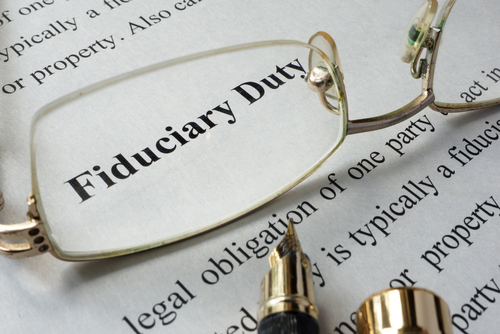When your business hires employees or those who work on your behalf, you want them to behave in a way that suits your interests and is complementary to the company. When this doesn’t happen, not only is it a disappointment, but it may also be a violation of the law. An example of this is when there’s a breach of a fiduciary duty. Read on to find out information about how to recognize a breach of fiduciary duty and what you need to show if you’re going to sue.
What is a Fiduciary Duty?
First, you should understand what a fiduciary is before you can understand their duty. This is simple enough: If an individual has a certain type of relationship with another (the principle) where they act on their behalf and in their interests, they can be considered a “fiduciary.” This includes employees of the principles. In their role as a fiduciary, they take on responsibilities, including the duty of loyalty and the duty of care, the duty of disclosure, and confidentiality.
How Do You Prove that There’s a Breach of Fiduciary Duties in NY?
If you want to show that there’s a breach of fiduciary duties in New York, you must establish the following:
- The existence of a fiduciary relationship
- Misconduct by the fiduciary
- Your damages were directly caused by the fiduciary’s misconduct
Existence of a Fiduciary Relationship
If you’re a plaintiff suing a defendant for a breach of fiduciary duty, you first need to prove that there’s a fiduciary relationship between the two of you in the first place. In cases of employee/employer, that’s typically a given that there’s a relationship based on trust, good faith, and loyalty, which qualifies under the law.
Misconduct by the Fiduciary
Misconduct may occur when an employee doesn’t fulfill one of these duties. For example, if the employee/fiduciary makes a transaction where they will make their own money that goes against their employer/principal. More specifically, this could be viewed as a breach of the duty of loyalty. Or the employee might breach the duty of confidentiality if they post the company’s trade secrets on a social media platform.
Damages Directly Caused by the Misconduct
Finally, you must show that your harm or damages were the direct result of the fiduciary’s misconduct. Using the above examples, an employer is harmed when the employee makes their own money from a deal because they are taking away compensation from the employer; when the employee discloses trade secrets, the employer suffers damages because the public knows something that they weren’t supposed to know, which could damage reputation or make it harder to compete in business.
Contact an Experienced NY Business Lawyer about Breach of Fiduciary Duty
You expect your employers and those that work on your behalf to work in the best interests of your business. When they breach their fiduciary duties, you may be able to recover compensation for any harm that they’ve brought to you. Discuss your case with a skilled NY lawyer who understands the ins and outs of business law. Our Mowk Law attorneys are ready to hear your side of the story. Contact us today.

